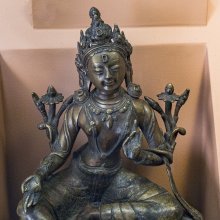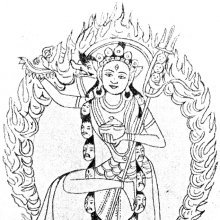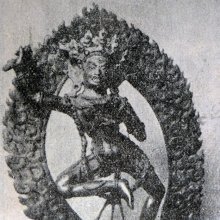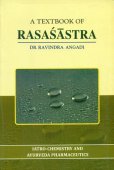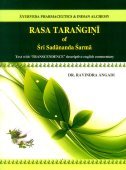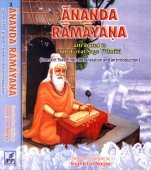Favour, Favor: 1 definition
Introduction:
Favour means something in Hinduism, Sanskrit. If you want to know the exact meaning, history, etymology or English translation of this term then check out the descriptions on this page. Add your comment or reference to a book if you want to contribute to this summary article.
Images (photo gallery)
In Hinduism
Yoga (school of philosophy)
Source: ORA: Amanaska (king of all yogas): A Critical Edition and Annotated Translation by Jason BirchFavours (as opposed to Curses) are denoted by the Sanskrit term Anugraha, according to the Amanaska Yoga treatise dealing with meditation, absorption, yogic powers and liberation.—Accordingly, as Īśvara says to Vāmadeva: “[...] [Now], I shall define the nature of that highest, mind-free absorption which arises for those devoted to constant practice. [...] By means of an absorption for nine nights, [the Yogin] who abides in his own undivided self has the Siddhi of speech, which can effect a favour (anugraha) or curse. [...]”.

Yoga is originally considered a branch of Hindu philosophy (astika), but both ancient and modern Yoga combine the physical, mental and spiritual. Yoga teaches various physical techniques also known as āsanas (postures), used for various purposes (eg., meditation, contemplation, relaxation).
See also (Relevant definitions)
Full-text (+1417): Anugraha, Upakara, Pratyupakara, Anukulya, Anukulata, Yacishnuta, Prasada, Kripapatra, Kirti, Guruprasada, Kritopakara, Radhas, Alum, Yashasyu, Sanukulya, Sumnavari, Phalaphalanem, Pritipurvaka, Pratyupakarin, Khushamarji.
Relevant text
Search found 325 books and stories containing Favour, Favor; (plurals include: Favours, Favors). You can also click to the full overview containing English textual excerpts. Below are direct links for the most relevant articles:
Bodhisattvacharyavatara (by Andreas Kretschmar)
Text Section 291 / Stanza 31 < [Khenpo Chöga’s Oral Explanations]
Śāntideva’s Bodhisattva-caryāvatāra - English Text
Khenpo Ape’s Advice On Studying The Bodhisattva-caryāvatāra < [Introduction Text]
The Great Chariot (by Longchenpa)
Part 3 - The Precious Human Body < [B. Delineating the nature of the freedoms and favors]
Part 1 - The summary of the essence < [A. The general explanation of being free and well favored, so difficult to obtain]
Part 2a - The extensive explanation of the eighteen freedoms and favors < [A. The general explanation of being free and well favored, so difficult to obtain]
Maha Prajnaparamita Sastra (by Gelongma Karma Migme Chödrön)
Appendix 8 - Permission for monks to wear fine robes (cīvara) < [Chapter XLI - The Eighteen Special Attributes of the Buddha]
Eighth comparison or upamāna: A shadow (chāyā) < [Bodhisattva quality 19: the ten upamānas]
II. Do the Buddhas and Bodhisattvas fulfill wishes without exception? < [Part 2 - Fulfilling the wishes of all beings]
Abhidhamma in Daily Life (by Ashin Janakabhivamsa) (by Ashin Janakabhivamsa)
Part 5 - Conclusion < [Chapter 9 - Patisandhi (the nature of rebirth)]
Part 3 - Abodes Of Devas < [Chapter 11 - Planes Of Existence]
Chaitanya Bhagavata (by Bhumipati Dāsa)
Verse 3.5.143 < [Chapter 5 - The Pastimes of Nityānanda]
Verse 2.7.35 < [Chapter 7 - The Meeting of Gadādhara and Puṇḍarīka]
Verse 2.9.142 < [Chapter 9 - The Lord’s Twenty-One Hour Ecstasy and Descriptions of Śrīdhara and Other Devotees’ Characteristics]
Vakyapadiya of Bhartrihari (by K. A. Subramania Iyer)
Verse 2.384 < [Book 2 - Vākya-kāṇḍa]
Verse 3.3.8-11 < [Book 3 - Pada-kāṇḍa (3): Sambandha-samuddeśa (On Relation)]
Verse 3.7.30 < [Book 3 - Pada-kāṇḍa (7): Sādhana-samuddeśa (On the Means)]
Related products
